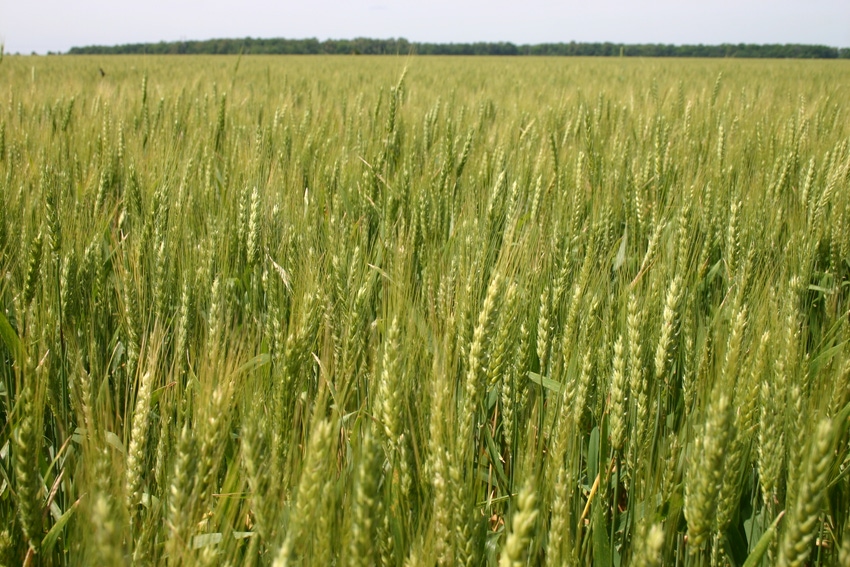
There are many good reasons that cover crops are increasingly being grown on Mid-South acreage. Among those reasons: erosion prevention, weed suppression, water quality benefits, and improving soil characteristics.
Michele Reba, a USDA-ARS research hydrologist, has been quantifying many cover crop benefits at research sites around the Arkansas Delta and the Lower Mississippi River Basin. One of the speakers at the recent, NRCS-sponsored Southern Agricultural Cover Crops Workshop held in Jonesboro, Ark., Reba explained how cover crops can positively impact farmland.
“The hydrologic cycle begins with precipitation that infiltrates into the ground and eventually runs off into waterways. The cycle continues with evaporation and transpiration back to the atmosphere, eventually forming clouds and the cycle begins again.
“So, consider a crop that is put on land during a period when the field would normally be fallow. The very general question is: how would that crop impact the hydrologic cycle? Cover crops can have a great impact.”
How so?
“First, there is precipitation. A cover crop, during winter, will likely trap more snow on the land.
“Evaporation is altered with the cover crop as it impacts radiation, wind, and vapor pressure deficit. Changes to radiation impact surface temperatures.”
Reba said work done by other researchers, “suggests that with crops, you may be able to increase surface temperatures. There won’t be as large a diurnal fluctuation in soil temperatures with cover crops.”
As a result, producers may be able to “plant a bit earlier because you may have warmer soil temperatures.”
The other large body of research associated with the hydrologic cycle and cover crops is the impact of run-off and how cover crops affect that. “Cover crops will reduce the amount of water coming off the landscape and leave more of it in the field by increasing infiltration rates.
“Soil profile storage capacity is also impacted by cover crops through macropore geometry and macrofauna activity. Again, allowing for more water to enter the ground and remain available to the field instead of running off.”
Among Reba’s other comments:
On different reasons to plant cover crops…
“In the northeastern part of Arkansas, there are fields where a cover crop is grown prior to planting cotton. That is to reduce the amount of wind erosion that the young cotton seedlings experience.
“In other areas farmers are using cover crops as ‘catch crops.’ That’s where a cover crop is grown to catch available nitrogen in the soil. That prevents leaching losses.”
'Catch' crops
On water quality benefits from cover crops…
“Using ‘catch crops’ takes up some of the nutrients that would otherwise be lost to waterways.
“A second objective for cover crops is to improve the nutrition of the subsequent, main crop. The synchronization of that is the cover crop is planted, grown, and then killed. Then, the nutrients from that activity mean the farmer wouldn’t have to apply as much – or any, depending on the situation – fertilizer for the main crop.
“Water quality concerns include sediment, either from wind or water. The other big part of the concern is excess nutrients coming off the field. That impacts the hypoxic zone in the northern Gulf of Mexico. Cover crops could actually help with the zone by keeping excess nutrients – nitrogen, phosphorus – coming off the fields.”
Much of Reba’s research deals with measurements of nutrient loss off farmland.
“As for reducing sediment loss, having a cover crop is obviously better than bare soil. That, in turn, improves water quality.
“Sediment is agriculture’s Number One pollutant. However, at least from my experience in agriculture, nutrient leaching seems to garner more press. But sediment loss is a significant reason to use cover crops.”
On Reba’s work in eastern Arkansas…
“The NRCS has an ongoing project, the Mississippi River Basin Healthy Watersheds Initiative (MRBI). It facilitates the implementation of conservation practices to avoid, control and trap nutrient run-off. The program works with producers to encourage various conservation practices.
“The MRBI focuses on roughly 19 project areas in Arkansas that are locally sponsor-led and receive NRCS funds to implement conservation practices to improve water quality. Part of that is to understand what we’ve been getting for those efforts.
“The MRBI is a collaborative effort that begins with program sponsors and links producers, conservation districts, universities and state and local agencies to work together on water resources issues.
“So, we’ve been working with producers in real-world situations to measure what’s coming off of those fields. We’ve done preliminary data analysis. I partner with Arkansas Association of Conservation Districts, Arkansas State University and the farmers. The farmers are a huge part of making this successful – they allow us on their land, share their practices and records.
Ag news delivered daily to your inbox: Subscribe to Delta Farm Press Daily.
“The producers are interested in knowing how much is being lost off their fields. Any that’s lost is a waste of their efforts and investment.
On preliminary findings…
“Some of the preliminary data in one northeast Arkansas study site suggests that dissolved phosphorus values coming off a field with cover crops are a bit less than half the amount coming off a field without cover crops. The initial conclusion is that cover crops are using up the nutrients.
“What’s interesting is that the cover crops in this particular field are used more for wind erosion to protect young cotton plants. But there are alternative benefits from a water quality standpoint for the producer.”
About the Author(s)
You May Also Like




